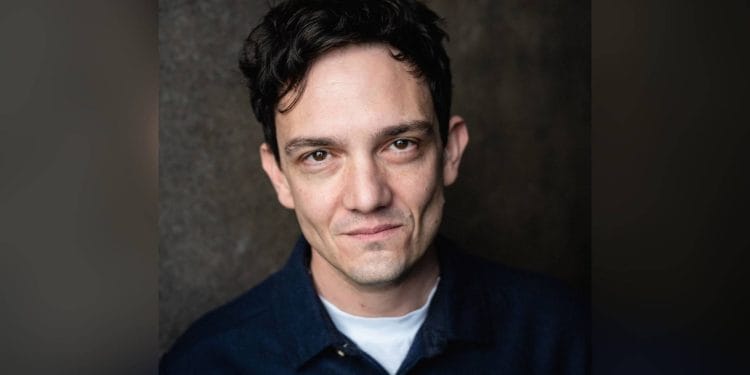Sebastian Armesto is the writer of Simple8’s critically acclaimed and multi-award-winning stage adaptation of Herman Melville’s leviathan masterpiece, Moby Dick – a fun, fast and joyous production that
transports you right to the heart of the hunt for the most famous whale on earth.
Royal & Derngate Artistic Director, Jesse Jones directs an incredibly multi-talented ensemble of nine actors and
actor-musicians: Mark Arends (Ishmael), Jonathan Charles (Ensemble), Hannah Emanuel (Starbuck), Syreeta Ku-
mar (Manx), Hazel Monaghan (Ensemble), James Newton (Flask), William Pennington (Stubb), and Tom Swale (Queequeg). Guy Rhys plays Captain Ahab.
Moby Dick opens at Royal & Derngate, Northampton, Friday 5 to Saturday 13 April then transfers to Wilton’s Music Hall London, Tuesday 23 April to Saturday 11 May, before touring.
Moby Dick is coming to Wilton’s Music Hall as part of a UK tour, what can you tell us about the show?
It’s mercifully brief and means that if you haven’t read the novel you can watch our show and then pretend that you have. It’s an adaptation that hopefully has been done with sensitivity and regard for the source material. It’s performed by a multi-talented ensemble of performers who conjure the ships, seas, storms and even whales from limited means, and they even play and sing all the sea shanties live.
What inspired you to adapt this well-known story?
I ask myself two questions when adapting a text for the stage: How will it benefit the story to be on stage? And how can an adaptation sit alongside and be in dialogue with the original text? In the case of Moby-Dick, and the first question, it’s about the pursuit of an unknown threat – they all imagine the whale, they endlessly discuss what makes a whale, what a whale is used for, whale behaviour, swap stories of Moby-Dick etcetera, but they don’t ever see him until the last few pages.
So the suspension of disbelief that is inherent in theatre is directly within the fabric of the novel. Secondly much of what I love about watching theatre in particular over other media is the delight I feel when watching lots of people collectively work to create something. Whaling voyages were also collective endeavours. In many ways Moby-Dick is about how the crew act and react together and how the external pressures affect them. So there’s ripe synergy between the medium and the subject matter.
To answer the second question in relation to Moby-Dick: two things govern this, the first an unfortunate accident since I originally wrote the adaptation in 2013 – Covid 19. Now the story of Moby-Dick resonates particularly strongly because of the existential fear and threat of the virus and the confinement and isolation that restrictions forced on people. Secondly there are questions to be asked about changes in attitudes and behaviour between the 19th century and now – about the environment, race and multiculturalism.
It’s been reimagined for the touring production, what have you had to think about for taking it on the road?
It’s been sensitively upscaled for mid-touring venues; the adaptation, with the help of Jesse, the director, and the ensemble, has been adjusted to iron out some of the creases from last time ; and there’s a fresh cast.
How does the story of Moby Dick benefit from Simple8’s style of theatre?
Simple8 specialise in ‘poor theatre’, where the emphasis is on the performers who conjure everything with limited means, playing multiple roles. The performers have to give themselves up to the demands of telling the story. That story-telling necessity mirrors the situation in which the crew of Pequod find themselves – that as whalers they sometimes have to subsume their own needs to that of the voyage, or the Captain.
The cast comprises actor-musicians, how does that enhance the storytelling?
Everyone does everything – it makes it a really live, complicit experience.
What would you say to anyone thinking of booking to see Moby Dick?
It’s excellent value, a ripping yarn, a great piece of theatre for all ages and has lots of song.

















